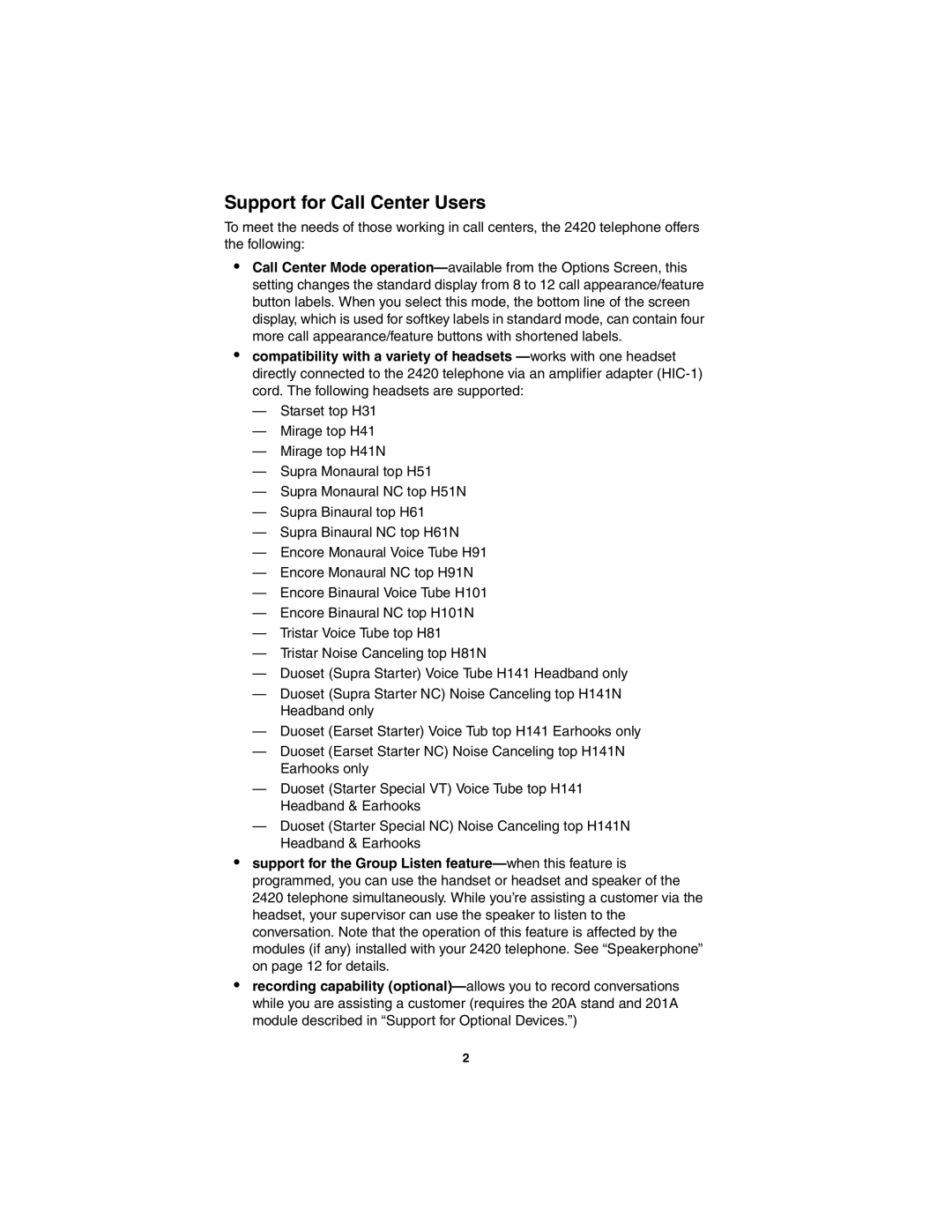Support for Call Center Users
To meet the needs of those working in call centers, the 2420 telephone offers the following:
•Call Center Mode
•compatibility with a variety of headsets
—Starset top H31
—Mirage top H41
—Mirage top H41N
—Supra Monaural top H51
—Supra Monaural NC top H51N
—Supra Binaural top H61
—Supra Binaural NC top H61N
—Encore Monaural Voice Tube H91
—Encore Monaural NC top H91N
—Encore Binaural Voice Tube H101
—Encore Binaural NC top H101N
—Tristar Voice Tube top H81
—Tristar Noise Canceling top H81N
—Duoset (Supra Starter) Voice Tube H141 Headband only
—Duoset (Supra Starter NC) Noise Canceling top H141N Headband only
—Duoset (Earset Starter) Voice Tub top H141 Earhooks only
—Duoset (Earset Starter NC) Noise Canceling top H141N Earhooks only
—Duoset (Starter Special VT) Voice Tube top H141 Headband & Earhooks
—Duoset (Starter Special NC) Noise Canceling top H141N Headband & Earhooks
•support for the Group Listen
•recording capability
2
